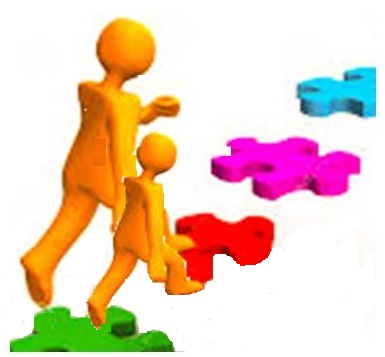Autism spectrum disorder (ASD)
Autism spectrum disorder (ASD) is a developmental disability characterised by impaired communication and restricted behaviour, interests, or activities. Children with autism have difficulties with social development that manifest early on. Signs include play being restricted to certain toys and actions (e.g. repetitive spinning of objects) and strong preferences for playing alone. Children may also exhibit other unusual social behaviours such as strong attachments to objects, inexplicable tantrums, and extreme difficulty coping with change. Effective early intervention is important for children with ASD.
Colleen-Maree has over 15 years experience working with children and adults with autism as well as in conducting research into the condition at postgraduate level. She uses her unique expertise to tailor programs to the personality and learning needs of each individual.
Interventions
ASD has significant genetic, biological, neurological, and sensory components. The powerful strategies Colleen-Marie employs are designed to address each of these aspects of ASD to enact positive change.
Early Start Denver Model (ESDM)
The ESDM is a behavioural early intervention program designed to improve social and communication skills in children aged 12-48 months. It adopts a holistic approach to the treatment of autism through embedding treatment within a relationship context. Parents work with an interdisciplinary team to prompt, shape, and reinforce desired social behaviours. The ESDM techniques can be applied to every day activities such as playing, having meals, getting dressed, and social interaction. The program takes place within both clinical and home environments to help children learn in the most natural way. ESDM intervention ultimate works to improve children's social and communication skills in the areas of verbal and body language, social and pretend play, and personal independence. At Therapy Success we will do an assessment using the ESDM checklist and design a unique program for your child.
In normal development, social thinking is neurologically hard-wired and learned from a young age. However, children with ASD lack the ability to intuitively absorb social information and think about how others perceive the world. They need to be taught these skills in a clear and explicit way.
Social Thinking is a program designed for people with social learning disabilities. It teaches how to think socially through considering and interpreting the points of view, emotions, and intentions of others. It is extremely effective in helping those with ASD improve social interaction in a wide range of contexts.Colleen-Maree runs classes each term in Emotional Self- Regulation using the Zones of Regulation' Curriculum.
MNRI® ASD is associated with many sensory and behavioural symptoms that impact on normal social functioning. Without intervention, the primary motor reflexes related to blocked neural pathways will remain compromised, resulting in the symptoms associated with ASD. What makes MNRI® so powerful and unique is the way it targets the underlying neurosensorimotor mechanisms that contribute to many of these outward displays. MNRI® works to successfully integrate neurological systems so that they can work cooperatively. As the MNRI Certified Core Specialist in the country who has completed training in 11 MNRI® protocols, Colleen-Maree Bates offers unique expertise in this powerful form of intervention.
Children and adults with ASD exhibit many unusual auditory behaviours. These include not responding to his/her name by 12 months as well as selective hearing in which an individual responds to certain sounds but ignores the human voice. Tomatis® is a method of sound sensory stimulation which works at the neurological level to correct the decoding and analysis of sounds to aid effective communication. As the first WA licensed provider of the Tomatis® Method, Colleen-Maree Bates possesses extensive experience in applying this powerful technique.
Nutritional Changes
Children with ASD often suffer from a wide range of gastrointestinal conditions and nutritional problems like food allergies, nutrient deficiencies, and feeding issues. Dietary interventions have been shown to benefit a significant number of children with ASD. Colleen-Maree Bates is trained in childhood nutrition and will use this expertise to tailor a treatment plan to your child.
Disablity Outside, Kind Heart Inside
Playground bullies and namecalling
How to handle hair brushing
How to block out noise
